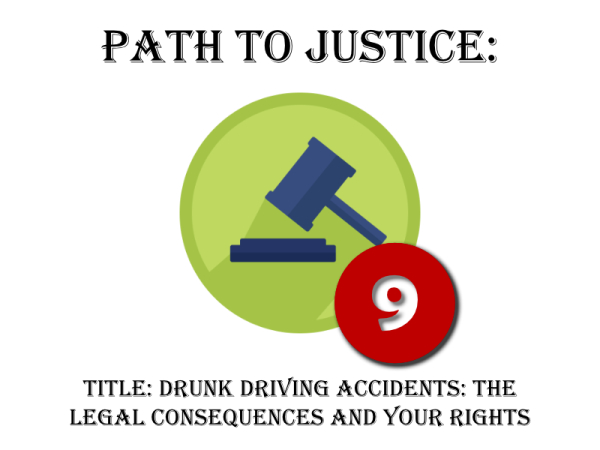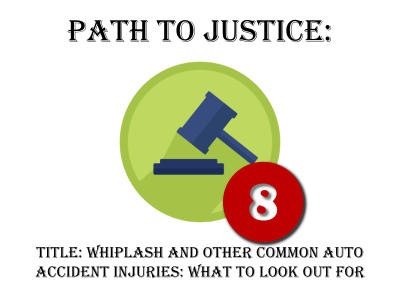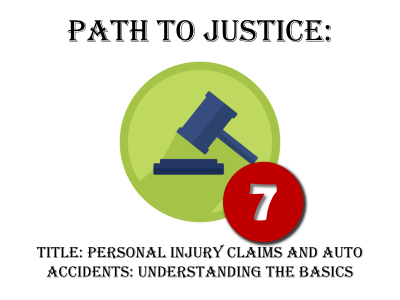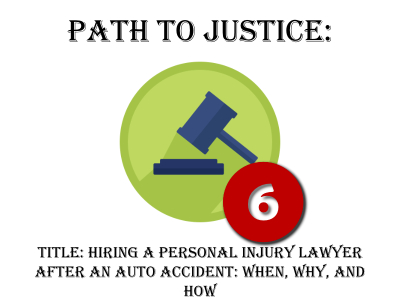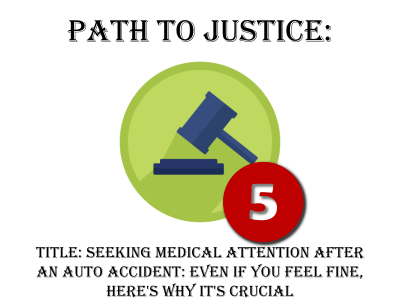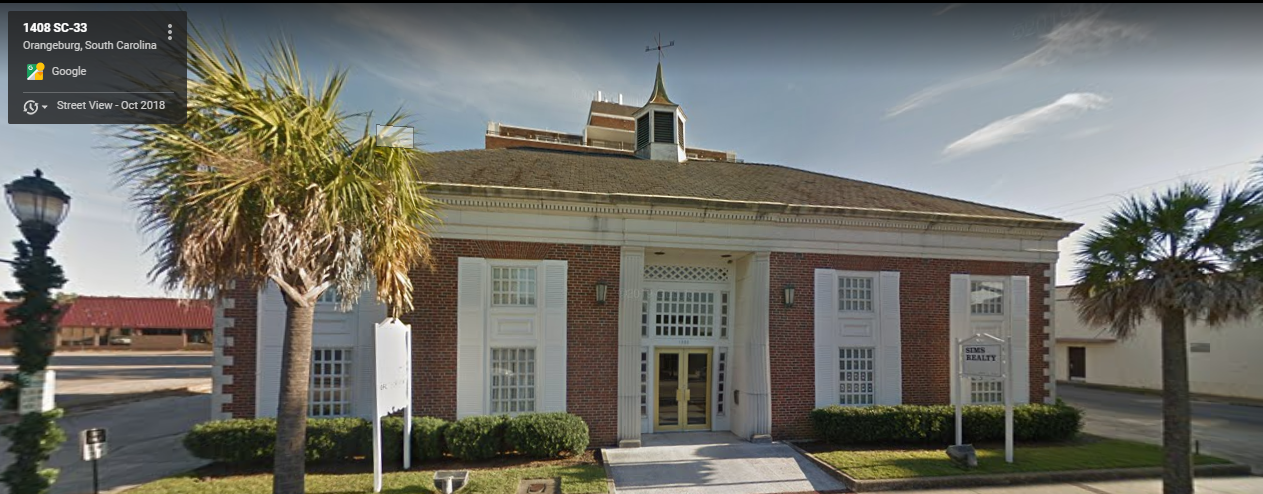
Law Related Articles (176)
Helpful information from an experienced attorneyChildren categories
Bamberg South Carolina Personal Injury (1)
 law related articles: Car accidents, Slip and fall, Hurt on the job...
View items...
law related articles: Car accidents, Slip and fall, Hurt on the job...
View items...
Personal Injury (122)
 Personal injury Claims and General knowledge
Learn and understand the personal injury claims the way attorneys do.
View items...
Personal injury Claims and General knowledge
Learn and understand the personal injury claims the way attorneys do.
View items...
Introduction
Auto accidents can occur for various reasons, but one crucial factor in determining liability is negligence. Negligence refers to the failure to exercise reasonable care which “proximately”
caused damages to others. In this article, we will explore the role of negligence in auto accidents and how fault is determined in such cases.
Understanding Negligence
Negligence in the context of auto accidents refers to the failure of a driver to exercise reasonable care while operating a vehicle, thereby causing harm to others.
To establish negligence, four elements must be proven:
- Duty of Care: The driver had a legal duty to exercise reasonable care and drive responsibly to prevent harm to others on the road and follow applicable laws.
- Breach of Duty: The driver failed to fulfill their duty of care by acting in a way that a reasonable person would not have under similar circumstances. This could include
reckless driving, violating traffic laws, distracted driving, or driving under the influence.
- Causation: The driver’s breach of duty “proximately” caused or contributed to the accident and resulting injuries or damages. The key with determining whether the cause
was the legal proximate cause is with foreseeability. Were the damages reasonably foreseeable with the breach of duty? As a practical matter, injuries caused in a car wreck
are almost certainly the legal cause of injuries from the accident.
- Damages: There must be actual damages, such as physical injuries, property damage, or financial losses, resulting from the accident and proximately caused by it.
Comparative Negligence
In some cases, both parties involved in an auto accident may share some degree of fault. This is where the concept of comparative negligence comes into play. Comparative negligence allows
the allocation of fault and damages based on the percentage of negligence attributed to each party. Each jurisdiction has its own rules regarding comparative negligence, including modified
comparative negligence and pure comparative negligence. South Carolina is a “modified comparative negligence” state, in which the injured party can obtain a verdict as long as he was not
more than 50% liable for the accident. Both parties can bring suits, and both parties could be considered 50% liable, and that happened in one of my cases.
Determining Fault
Determining fault in an auto accident requires a thorough investigation of the circumstances surrounding the incident. This may involve collecting evidence such as police reports, eyewitness
testimonies, photographs of the accident scene, video footage, and expert analysis. Insurance companies, law enforcement, and courts consider various factors to determine fault, including:
- Traffic Laws: Violating traffic laws, such as running a red light, speeding, or failing to yield, can establish negligence and fault.
- Witness Statements: Eyewitness testimonies can provide valuable information about the events leading up to the accident.
- Police Reports: Police reports typically include details of the accident, witness statements, and any citations issued at the scene.
- Expert Analysis: Accident reconstruction experts and forensic specialists may be consulted to analyze the evidence and determine the sequence of events.
Conclusion
Negligence plays a crucial role in determining fault in auto accidents. Establishing negligence requires proving a breach of duty, causation, and resulting damages. Comparative negligence may also
come into play when multiple parties share fault. If you’ve been involved in an auto accident, it’s essential to consult with an experienced personal injury attorney who can assess the circumstances,
gather evidence, and advocate for your rights. They will help navigate the complexities of negligence and liability to ensure you receive fair compensation for your injuries and losses.
Introduction
Drunk driving accidents have devastating consequences, causing serious injuries and even fatalities. In addition to the physical and emotional trauma, these accidents also have severe legal ramifications.
Understanding the legal consequences of drunk driving accidents and knowing your rights is essential for both victims and those facing DUI charges. In this article, we will explore the legal implications of
drunk driving accidents and provide guidance on how to protect your rights.
The Dangers of Drunk Driving
Driving under the influence of alcohol is a dangerous act that significantly impairs a person's ability to operate a vehicle safely. Alcohol affects judgment, coordination, reaction time, and concentration,
making it a major contributing factor to accidents on the road. Understanding the dangers associated with drunk driving is crucial for promoting responsible behavior and preventing tragic accidents.
Criminal Consequences
Driving under the influence is a serious criminal offense in most jurisdictions. When a person is arrested for DUI (Driving Under the Influence) or DWI (Driving While Intoxicated), they can face criminal charges,
including fines, license suspension, mandatory alcohol education programs, probation, and even imprisonment. The severity of the penalties varies depending on the jurisdiction and the driver's blood alcohol
concentration (BAC) level.
Civil Liability for Drunk Driving Accidents
In addition to criminal charges, drunk drivers can also be held legally liable for the damages and injuries caused by their actions. Victims of drunk driving accidents have the right to pursue civil lawsuits against
the intoxicated driver. These lawsuits seek compensation for medical expenses, property damage, lost wages, pain and suffering, and other related losses. Understanding your rights as a victim and the legal options
available to you is crucial in seeking justice and fair compensation.
Dram Shop Laws
In some jurisdictions, there are laws known as "dram shop" laws that hold establishments accountable for serving alcohol to visibly intoxicated individuals who later cause accidents. These laws recognize that the
responsibility for preventing drunk driving extends beyond the intoxicated driver and includes establishments that serve alcohol. If it can be proven that an establishment continued to serve alcohol to a visibly
intoxicated person who later caused an accident, the establishment may be held partially liable for the damages.
Seeking Legal Representation
If you or a loved one has been involved in a drunk driving accident, seeking legal representation from an experienced personal injury attorney specializing in drunk driving cases is essential. A knowledgeable attorney
will help protect your rights, gather evidence, negotiate with insurance companies, and guide you through the legal process to maximize your chances of obtaining fair compensation.
Conclusion
Drunk driving accidents have far-reaching legal consequences for both the intoxicated driver and the victims involved. Understanding the legal implications, criminal charges, civil liability, and your rights is vital in seeking
justice and recovering the compensation you deserve. Remember, seeking legal advice from a qualified attorney is crucial to navigate the complexities of drunk driving cases and ensuring the best possible outcome.
Introduction
Auto accidents can lead to various types of injuries, some of which may not be immediately apparent. One such common injury is whiplash, which can cause significant pain and discomfort.
However, whiplash is just one example of the injuries that can result from an auto accident. This article will explore whiplash and other common auto accident injuries, helping you understand
their symptoms, potential complications, and the importance of seeking medical and legal assistance.
Understanding Whiplash
Whiplash is an injury that commonly occurs when the head and neck are abruptly jolted forward and backward in a sudden impact, causing the neck to hyperextend and flex. This rapid motion
can strain and damage the neck's muscles, ligaments, and soft tissues. Symptoms of whiplash may include neck pain, stiffness, headaches, dizziness, and even cognitive difficulties. It's essential
to recognize these symptoms and seek medical attention promptly.
Other Coon Auto Accident Injuries
Beyond whiplash, auto accidents can result in various injuries, some of which may have long-term consequences. Here are a few other commonly seen injuries:
- Back Injuries: The forceful impact of an auto accident can cause damage to the spinal cord, resulting in herniated discs, fractures, or nerve compression.
Back injuries can cause chronic pain, limited mobility, and even paralysis in severe cases.
- Head and Brain Injuries: Head injuries can range from mild concussions to more severe traumatic brain injuries (TBI). Symptoms may include headaches,
dizziness, confusion, memory problems, and changes in mood or behavior. Prompt medical evaluation is crucial to assess the extent of the injury and initiate appropriate treatment.
- Bone Fractures: The impact of a car accident can lead to fractures in various bones, such as the arms, legs, ribs, or pelvis. Fractures may require immobilization, surgery,
or other interventions for proper healing.
- Soft Tissue Injuries: Besides whiplash, auto accidents can cause other soft tissue injuries, such as sprains, strains, and contusions. These injuries can result in pain, swelling,
and limited range of motion.
The Importance of Seeking Medical and Legal Assistance
After an auto accident, it's crucial to prioritize both your physical well-being and your legal rights. Seeking immediate medical attention is vital, even if you don't experience immediate
pain or symptoms. Some injuries may have delayed onset symptoms and require early intervention for better outcomes.
Additionally, consulting with a personal injury attorney experienced in auto accident cases can help protect your rights and ensure you receive the compensation you deserve. An attorney
can guide you through the legal process, gather evidence, negotiate with insurance companies, and build a strong case on your behalf.
Conclusion
Auto accidents can result in various injuries, including whiplash, back injuries, head and brain injuries, fractures, and soft tissue injuries. Recognizing the symptoms of these injuries and
seeking prompt medical attention is crucial for your well-being. Additionally, consulting with a personal injury attorney can help you navigate the legal aspects, protecting your rights and
pursuing fair compensation for your injuries and losses. Remember, taking proactive steps to address your health and legal concerns after an auto accident is essential for your recovery
and future well-being.
Personal injury claims resulting from auto accidents are a prevalent legal issue that millions of people navigate each year. Understanding the basics of these claims is vital for anyone involved
in an auto accident and seeking to protect their rights and interests.
What is a Personal Injury Claim?
In the context of auto accidents, a personal injury claim is a legal dispute that arises when one person suffers personal (versus solely property damage) harm due to an accident that another
party may be legally responsible. This claim seeks to recover compensation for the injured party’s losses, including medical expenses, lost wages, and pain and suffering.
How Does an Auto Accident Result in a Personal Injury Claim?
Auto accidents can lead to personal injury claims when one driver’s negligence causes an accident that injures another person. For instance, if Driver A was speeding and hit Driver B,
causing Driver B to suffer injuries, Driver B could file a personal injury claim against Driver A.
How to File a Personal Injury Claim
If you’ve been injured in an auto accident and wish to file a personal injury claim, the first step is generally to notify your insurance company about the accident. You should provide detailed
information about the accident and your injuries, then reach out to the liable party’s insurance company, though it’s advisable to consult with a personal injury attorney who can guide you
through the legal process. Attorneys can help gather evidence to support your claim, negotiate with the liable party’s insurance company, and, if necessary, represent you in court.
What Compensation Can You Receive?
The purpose of a personal injury claim is to help the injured party recover financially from their losses. Therefore, you may be able to receive compensation for damages, including:
- Medical expenses: This includes hospital bills, medication costs, physical therapy, and any other medical costs related to your injuries.
- Lost wages: If your injuries forced you to take time off work, you could be compensated for the income you lost during that time.
- Pain and suffering: This is compensation for the physical and emotional stress caused by the accident and injuries.
- Property damage: If your vehicle was damaged in the accident, you could receive compensation for the repair or replacement costs.
Remember, every case is unique, and the type and amount of compensation you may be eligible for will depend on the specifics of your situation.
Navigating a personal injury claim can be a complex and challenging process. Therefore, seeking legal counsel from an experienced attorney is highly recommended. They can provide
valuable advice, guide you through the process, and help you understand your rights and options. Stay tuned for the next article in our series, where we will discuss the role of insurance
in personal injury claims related to auto accidents.
In the aftermath of an auto accident, you may find yourself facing mounting medical bills, car repair costs, and the potential loss of income due to injuries. Navigating this situation and
dealing with insurance companies can be challenging, and that’s where a personal injury lawyer can play an invaluable role.
When Should You Hire a Personal Injury Lawyer?
Generally, it’s a good idea to consult with a personal injury lawyer if:
- You’ve Sustained Injuries: The severity and longevity of your injuries directly affect the amount of compensation you may receive from the liable party (including through his
insurance). Generally, the longer your recovery period, the higher your potential compensation, and a lawyer can ensure you get what you deserve.
- Liability or Damages Is Disputed: If it’s unclear who was at fault or if the insurance company disputes their policyholder’s liability, a lawyer can help gather evidence to support
your case. If the liable party (or insurance company) disputes damages sustained, an attorney can likewise help.
- Insurance Company is Uncooperative: Insurance companies can sometimes delay or deny claims unfairly. A personal injury lawyer can handle these disputes and negotiations
on your behalf.
How to Choose the Right Personal Injury Lawyer?
When it comes to hiring a personal injury lawyer, consider the following:
- Experience: Look for an attorney whose practice includes personal injury law and has had experience with your type of case (for example, auto wreck) over a number of years.
- Reputation: Check client testimonials, online reviews, and ask about the lawyer’s track record with auto accident claims. A great place to review is with the Martindale-Hubbell
attorney peer review ratings. *An attorney who has earned an “AV Preeminent” peer review ranking is at the top of all lawyers for competency and ethics.
- Fee Structure: Most personal injury lawyers work on a contingency basis, meaning they receive a percentage of your settlement or verdict. Make sure your case is being charged
on contingency and not an hourly fee because a contingency ensures the lawyer has a personal stake in the highest resolution possible.
Key Questions to Ask Your Potential Lawyer
Before hiring, make sure to ask some key questions:
- What is your experience handling cases like mine?
- What is your success rate for resolutions?
- How will you handle my case?
- What are your fees?
- How long do you expect this process to take?
Remember, hiring a personal injury lawyer is about securing the best possible outcome for your situation. Take the time to research and find the right lawyer for your case.
In our next article, we will discuss the process of filing a personal injury lawsuit after an auto accident and what to expect during this process. Stay tuned!
Author's Note: Attorney Bill Connor of the Bill Connor Law Firm in Orangeburg, SC, is a distinguished legal professional who holds an AV Preeminent rating, recognizing his
legal ability and adherence to professional standards of conduct and ethics, reliability, diligence, and other criteria relevant to the discharge of professional responsibilities.
Getting into a car accident is a highly stressful event. Amid the chaos, you may not immediately feel any pain or notice any injuries. However, failing to seek medical attention
after a car accident could be a costly mistake, both for your health and any potential personal injury claim. Let's delve into why this step is so crucial.
Immediate Health Concerns
Car accidents can cause a variety of injuries, some of which may not be immediately apparent due to the adrenaline rush and shock following the accident. Here are a few reasons
why seeking medical attention is necessary:
- Hidden Injuries: Injuries such as internal bleeding, concussions, whiplash, or soft tissue injuries might not show immediate symptoms but can lead to serious health
complications if left untreated.
- Documentation: A medical examination right after the accident provides a professional record of your injuries, which can be crucial if you decide to pursue a personal
injury claim.
- Treatment Plan: Early diagnosis allows for immediate treatment, which can accelerate recovery and help prevent long-term complications.
Legal and Insurance Implications
Seeking prompt medical attention isn't just important for your health – it also plays a critical role in the legal and insurance aspects of a car accident:
- Credibility of Your Claim: Delaying medical treatment can cast doubt on the severity of your injuries, providing insurers and at-fault parties with a basis to dispute your claim.
- Linking Injuries to the Accident: The more time that passes between the accident and your medical examination, the harder it can be to convincingly link your injuries to the
accident. Immediate medical attention establishes a timeline that ties your injuries directly to the collision.
- Calculating Damages: Detailed medical records can help determine the monetary value of your personal injury claim, accounting for medical bills, rehabilitation costs, lost wages,
and pain and suffering.
Key Takeaways
Even if you feel fine after an auto accident, seek immediate medical attention. It is crucial for detecting hidden injuries, beginning a recovery plan, and establishing a vital link between the
accident and your injuries for any potential legal or insurance claims.
In our next article, we will explore the process of hiring a personal injury lawyer for auto accidents, focusing on when it's necessary, what to consider, and what questions to ask to ensure
you have the right representation.
Today, we’re delving into one of the most critical aspects following a car accident – reporting the incident. This involves two primary entities: law enforcement and your insurance company.
Let’s discuss why it’s so crucial and what you need to do.
Why Report an Accident?
There are legal, insurance, and safety reasons to report a car accident, no matter how minor it might seem. Reporting creates a legal record of the incident, helps facilitate the insurance
claims process, and may aid in identifying problematic locations or behaviors that could prevent future accidents.
Reporting to Law Enforcement
Depending on your location, you may be legally obligated to report a car accident to law enforcement. Even if it’s not a requirement in your area, it’s still a good idea to report the
incident. Here’s why (Note that unless an officer can be qualified as an expert, any reports based on his observations and interviews after the accident would not be allowed in court
as evidence but has substantial persuasive value with insurance companies):
- Documentation: A police report provides an official incident record, which can be invaluable in potential legal disputes or insurance claims.
- Impartial Third-Party Perspective: Police officers can provide an unbiased account of the accident, documenting details that you might have missed and speaking with all
involved parties and witnesses.
- Legal Protection: If the other party involved in the accident decides to file a lawsuit against you, a police report could provide crucial information that may aid in your defense.
Reporting to Your Insurance Company
After an auto accident, one of your first calls should be to your insurance company.
- Early Reporting: Reporting the accident as soon as possible ensures that the incident is fresh in your mind, and you can provide all the necessary details to your insurance provider.
- Insurance Claims: The sooner your insurer knows about the accident, the sooner they can start processing your claim.
- Legal Requirement: Depending on your insurance policy, you may be legally obligated to report any incidents involving your vehicle. Failure to do so could result in a denial of your
claim or even a cancellation of your policy.
- Professional Guidance: Your insurance company can provide guidance on what steps to take after the accident, including arranging for vehicle repair and medical treatment, if necessary.
Key Takeaways
Report the auto accident to both law enforcement and your insurance company. Remember to provide accurate and detailed information about the accident to both entities. This information
can play a crucial role in any subsequent legal proceedings or insurance claims.
In tomorrow’s article, we will discuss the importance of seeking medical attention after an auto accident, even if you think you are not injured. This crucial step could make a significant
difference in your recovery and your personal injury claim.
After experiencing an auto accident, it’s normal to feel a rush of adrenaline and a sense of relief that you’re safe. But after ensuring everyone’s well-being,
it’s time to take a closer look at your vehicle’s condition. Today, we’re discussing the importance of promptly assessing vehicle damage and why it’s so crucial.
Safety First, Always
The most immediate reason to get your vehicle checked after an accident is safety. Auto accidents can cause hidden damage that may not be visible to the
untrained eye. This includes potential issues with the car’s structural integrity, the wheels, the brakes, or the engine, among others. Neglecting to address
these issues can lead to severe mechanical failures while driving, possibly leading to another accident.
Protecting Your Investment
Your vehicle is a significant investment. To protect its value, you should have it thoroughly inspected and repaired after an accident. This applies even if the
damage seems minor. Something as small as a dent or scratch can lead to more significant problems down the line if not addressed properly, such as rust or
internal damage.
Insurance Purposes
Your insurance company will require a thorough inspection and an estimate of repair costs to process your claim. In many cases, your insurer will have specific
auto repair shops they work with for this process. Make sure to take this step promptly to avoid delays in your insurance claim.
Legal Protection
A proper assessment of your vehicle’s damage also has legal implications. If you're involved in a lawsuit related to the accident, the extent and cost of your
car's repairs can play a critical role in your case. A documented inspection by a professional can serve as key evidence in court. Normally, lawyers are only involved
with the personal injury claim associated with the accident that caused property damage. The two claims are separate, with the lawyer handling most issues with
the personal injury and the vehicle owner handling the property damage directly with the insurance company. It’s important to act as a tough negotiator to get the
proper property damage assessment and repair estimate, and know that will also affect the way the personal injury claim is assessed. The more damage to the
vehicle, the more personal injury (and a higher level of personal injury) is assumed.
How to Proceed with the Assessment
As soon as possible after the accident, take your vehicle to a professional mechanic or a collision repair center for a thorough inspection. They can evaluate both visible
and hidden damage, provide a detailed report, and give you an estimate of the repair costs. Keep all these documents safe, as you may need them for your insurance
claim or legal proceedings. Remember, even if your vehicle appears to be running smoothly after the accident, do not skip this crucial step. It’s better to ensure everything
is in order rather than risk missing hidden damage that could cause problems in the future.
In tomorrow’s discussion, we’ll delve into the complexities of dealing with auto insurance companies after an accident. You won’t want to miss it!
Being involved in an auto accident can be a frightening and disorienting experience. However, understanding the initial steps to take following an accident can help ensure your safety and
protect your rights. Here, we’ve outlined a basic guide on what to do immediately after an auto accident.
Ensure Safety First
Your immediate concern following an auto accident should be the safety of everyone involved. If possible, and it’s safe to do so, move your vehicle out of traffic to a safe location nearby.
If your car is not drivable, turn on your hazard lights to alert other drivers. Next, check yourself and others for injuries. Even if injuries seem minor, seeking medical attention immediately
is essential, as some injuries may not be apparent immediately.
Call the Authorities
It’s crucial to report the accident to law enforcement, regardless of its severity. Police will come to the accident scene, assess the situation, and create an official accident report. This
document can be a valuable piece of evidence should you need to file a claim with your insurance company or a lawsuit against the other driver.
Exchange Information
Exchange the following information with all involved parties:
- Full name and contact information
- Insurance company and policy number
- Driver’s license and license plate number
- Type, color, and model of the vehicle
- Location of the accident
Avoid discussing the accident or apologizing, as it could be interpreted as an admission of fault.
Document the Accident
Take photographs of all vehicles involved from different angles, showing the damage done. Include pictures of any skid marks or debris on the road. Also, photograph your injuries if there
are visible signs of harm.
Notify Your Insurance Company
Notify your insurance company about the accident as soon as possible. Cooperate with them and explain the facts clearly. However, consider obtaining legal advice before giving recorded
statements or accepting any settlements. Your insurance company can fix your vehicle and then go after the liable insurance for your deductible. Alternatively, you can go straight to contacting
the liable insurance company to make the claim while informing your insurance company. The claim for vehicle damage will be a separate claim from personal injury, which can be brought later.
Keep a Record
Start a file to keep all accident-related documents and notes. Include the claim number, the claim’s adjuster handling the case, the names and phone numbers of all contacts, receipts for a
rental car, and other expenses incurred due to the accident.
Consult with a Personal Injury Attorney
If you were injured in the accident, it might be beneficial to consult with a personal injury attorney to understand your rights and ensure you get the compensation you deserve.
Remember, the aftermath of an auto accident can be a stressful and confusing time. But by keeping these steps in mind, you can ensure you take the right actions to protect both
your health and your rights. Tomorrow, we’ll delve into understanding and dealing with auto insurance claims after an accident. Stay tuned!
If you've ever asked yourself why auto accidents occur so frequently, you're not alone. Every year, millions of people worldwide experience the shock and disruption of a car crash.
But why does this happen, and can anything be done to prevent these accidents? Today, we'll delve into the common causes of auto accidents and explore preventative measures.
Common Causes of Auto Accidents
- Distracted Driving
Distracted driving is a leading cause of auto accidents. Distractions can take many forms, including texting, changing the radio station, eating, or even applying makeup while driving.
The introduction of smartphones and in-car entertainment systems has only increased the potential for distractions.
- Speeding
Driving over the speed limit is another common cause of accidents. High speeds make it harder for drivers to control their vehicles and increase the distance needed to stop, thus leading
to more severe accidents.
- Drunk Driving
Despite strict laws and enforcement, driving under the influence of alcohol or drugs remains a significant issue. These substances impair the driver's ability to make split-second decisions
and react appropriately to road situations, often leading to tragic consequences.
- Reckless Driving
Reckless behaviors, such as aggressive driving, tailgating, changing lanes without signaling, and not obeying traffic signs or signals, also contribute to many auto accidents.
- Weather Conditions
Severe weather conditions like rain, snow, fog, or icy roads can lead to accidents by reducing visibility and making roads slippery.
Preventive Measures
While it's impossible to eliminate all risks associated with driving, taking preventive measures can significantly reduce the chance of accidents.
Here are a few ways to stay safe on the road:
- Avoid Distractions: Keep your eyes on the road at all times, and avoid using your phone or getting distracted by other activities while driving.
- Obey Speed Limits: Speed limits exist for a reason. Always adhere to them, even if you're running late.
- Don't Drive Under the Influence: Never operate a vehicle if you've consumed alcohol or drugs. Instead, choose a designated driver or use a rideshare service.
- Drive Defensively: Always be aware of other drivers and expect the unexpected. Maintain a safe distance from other vehicles, and never assume other drivers will make safe decisions.
- Adapt to Weather Conditions: Slow down and increase your following distance during bad weather. If the conditions are too dangerous, consider delaying your trip until the weather improves.
In our next article, we'll discuss the initial steps you should take after experiencing an auto accident. This will include practical advice on ensuring your safety, collecting important information,
and safeguarding your legal rights. Stay tuned!



